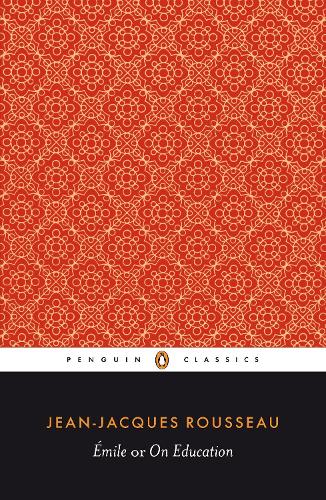
Emile; or On Education
(Paperback)
Publishing Details
Emile; or On Education
By (Author) Jean-Jacques Rousseau
Penguin Books Ltd
Penguin Classics
1st October 2007
25th April 1991
United Kingdom
Classifications
General
Non Fiction
843.5
Physical Properties
Paperback
512
Width 129mm, Height 198mm, Spine 28mm
371g
Description
Educators as well as students of philosophy will find much to admire in Rousseau's still fresh and innovative ideas. In his pioneering treatise on education the great French philosopher Jean-Jacques Rousseau (1712-1778) presents concepts that had a significant influence on the development of pedagogy in the eighteenth century, and yet many of his ideas still sound radical today. Written in reaction to the stultifying system of rote learning and memorization prevalent throughout Europe at the time, Emile is a utopian vision of child-centered education, full of the sentiments of Romanticism, a movement that Rousseau inspired. Imagining a typical boy named Emile, Rousseau creates an ideal model of one-on-one tutelage from infancy to manhood with himself as the child's mentor. As in so many of his other famous works, here, too, Rousseau asserts his main thesis that human beings are by nature good; it is only the distorting influences of civilization that have corrupted them.
Author Bio
JEAN-JACQUES ROUSSEAU was born in Geneva in 1712. His remarkable novel La nouvelle Heloise (1761), met with immediate and enormous success. In this and in mile, which followed a year later, Rousseau invoked the inviolability of personal ideals against the power of the state and the pressures of society. The crowning achievement of his political philosophy was The Social Contract, published in 1762. That same year he wrote an attack on revealed religion, the Profession de foi du vicaire savoyard. He was driven from Switzerland and fled to England where he only succeeded in making an enemy of Hume and returned to his continental peregrinations. In 1770 Rousseau completed his Confessions. His last years were spent largely in France where he died in 1778.
